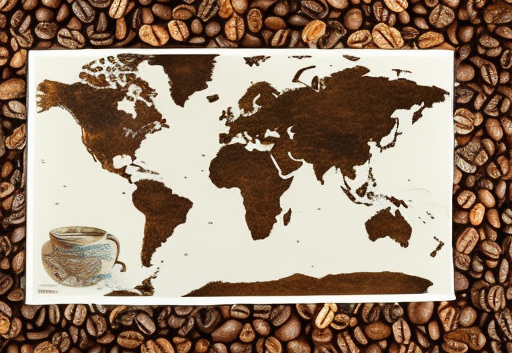Coffee labels can be confusing for many consumers, with terms like “single origin” and “fair trade” often appearing on bags of beans or in coffee shop menus. Understanding these terms can help you make more informed choices when selecting your coffee and support sustainable and ethical practices in the coffee industry. I did a bit of research that I hope clears some things up, it did for me.
“Single origin” refers to coffee that comes from a single geographic location, usually a particular farm, region, or country. This means that the coffee beans in the bag are all from the same source and have not been blended with beans from other locations. Single origin coffee can offer a unique flavor profile that reflects the characteristics of the specific region where the beans were grown. This term can also indicate transparency in the supply chain and traceability of the beans back to their origin.
“Fair trade” is a certification that ensures coffee farmers receive a fair price for their beans and have access to safe working conditions and sustainable farming practices. The certification is awarded by a third-party organization that assesses whether a coffee producer meets certain social and environmental standards. Fair trade coffee aims to provide better wages and working conditions for farmers, promote sustainable farming practices, and ensure transparency and traceability in the supply chain.
“Organic” coffee refers to coffee that has been grown without the use of synthetic pesticides or fertilizers. This means that the coffee beans are produced using natural methods and do not contain harmful chemicals. Organic coffee is often considered more sustainable and environmentally friendly than conventionally grown coffee.
“Shade grown” coffee is coffee that has been grown under a canopy of trees, often in a natural or forested environment. This method of coffee production can have positive environmental impacts, as it preserves biodiversity and provides a habitat for migratory birds and other wildlife. Shade grown coffee can also have unique flavor characteristics that reflect the particular microclimate of the region where it was grown.
“Direct trade” refers to a sourcing model in which coffee roasters purchase beans directly from the farmers who grow them. This can help ensure transparency and fairness in the supply chain, as well as support sustainable farming practices and the economic livelihoods of coffee producers. Direct trade coffee can offer unique flavor profiles and a higher level of traceability than traditional sourcing models.
“Rainforest Alliance certified” coffee refers to coffee that has been produced using environmentally sustainable and socially responsible practices. The certification is awarded by a third-party organization that assesses whether coffee producers meet certain standards for environmental conservation and social responsibility. Rainforest Alliance certified coffee can promote biodiversity, improve soil health, and support the economic well-being of coffee producers.
In summary, decoding coffee labels can help you make more informed choices when selecting your coffee and support sustainable and ethical practices in the coffee industry. Terms like “single origin,” “fair trade,” “organic,” “shade grown,” “direct trade,” and “Rainforest Alliance certified” can all indicate transparency, traceability, sustainability, and social responsibility in the coffee supply chain. By understanding these terms and their implications, you can help support a more sustainable and equitable coffee industry.
Please note that if you purchase from clicking on the link, I will get a tiny bit of that sale to help keep this site going.


